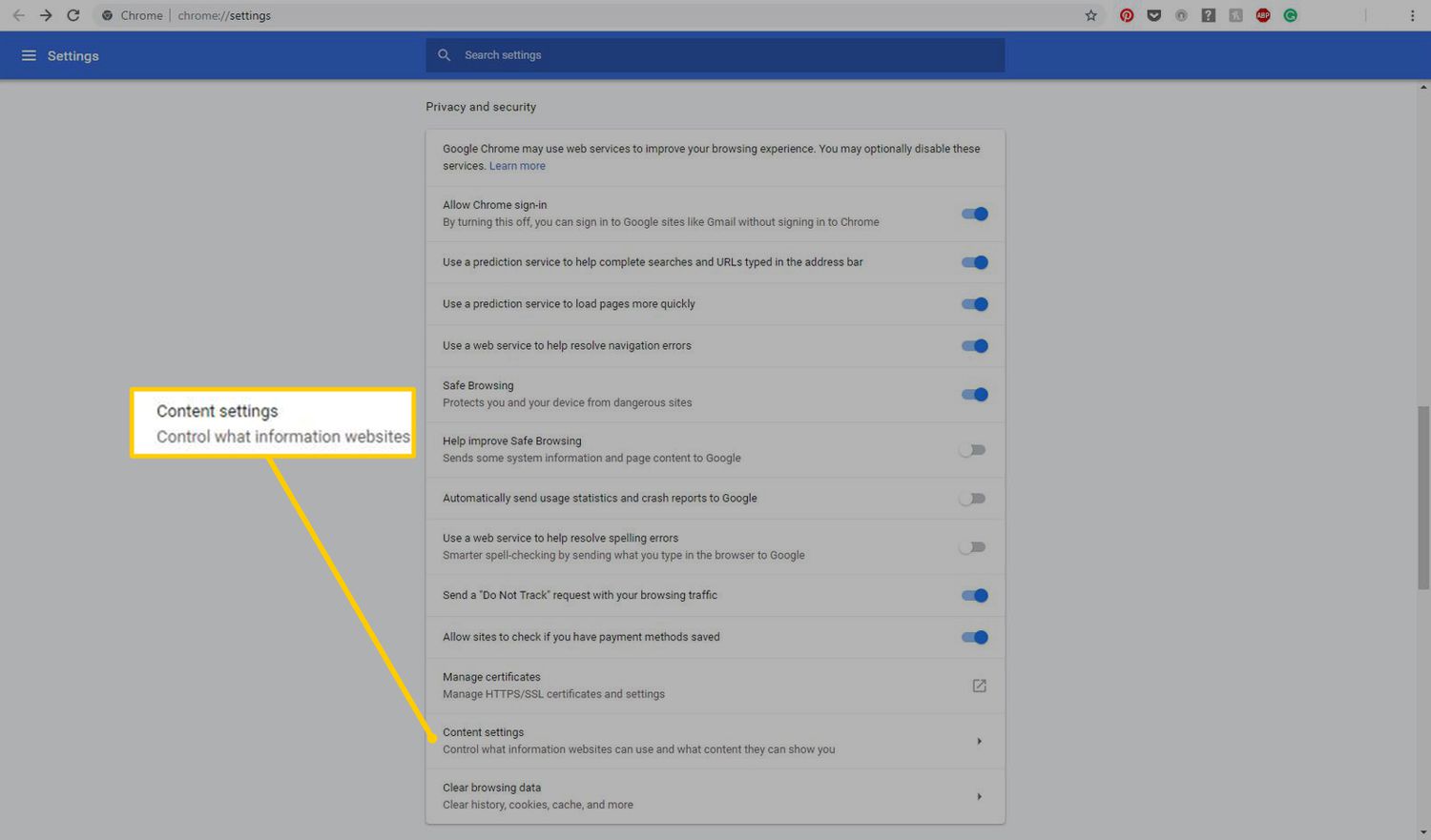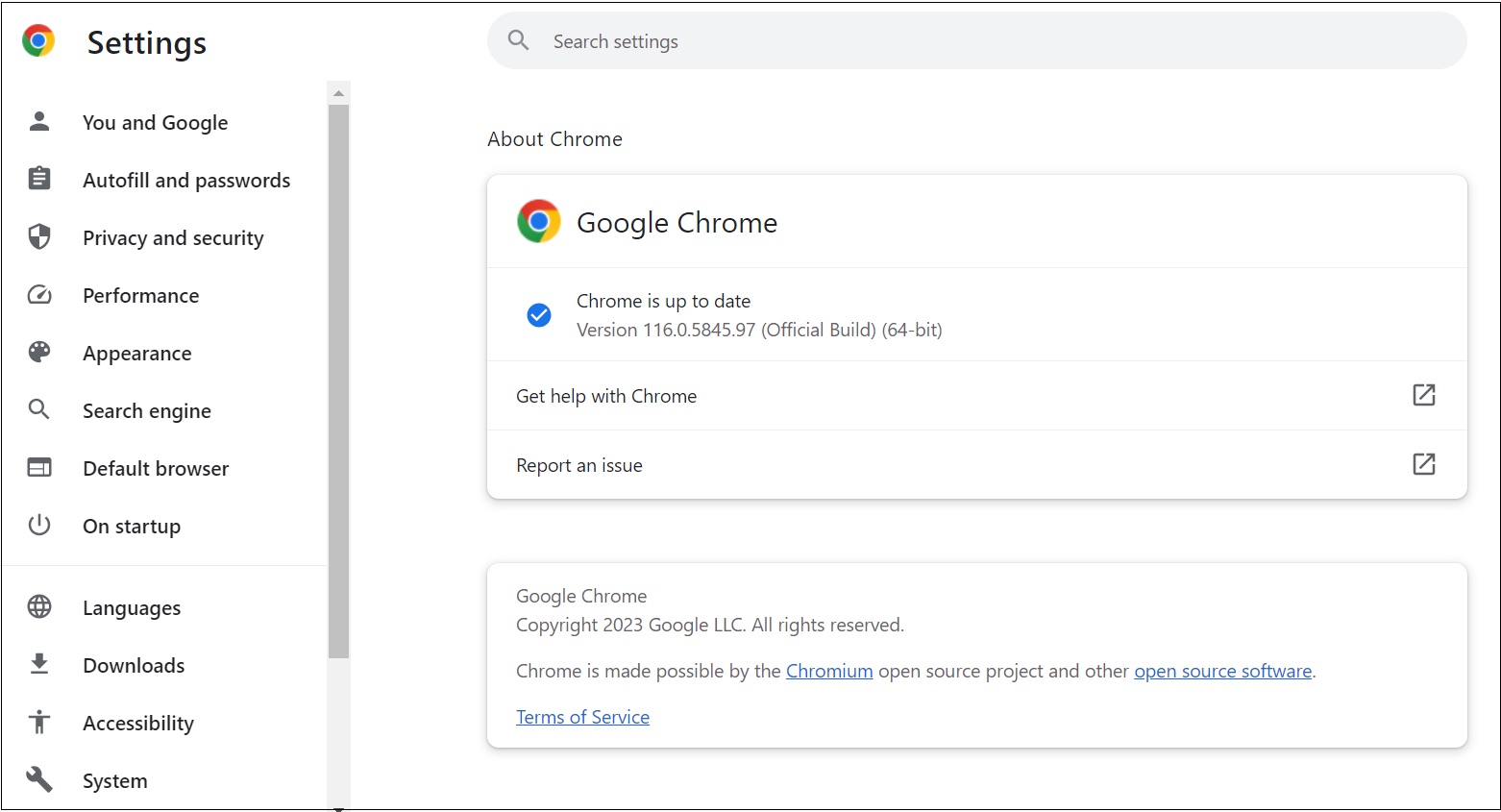Check Your Internet Connection
The speed of your downloads can be significantly affected by the quality and stability of your internet connection. Before delving into more complex solutions, it's crucial to ensure that your internet connection is performing optimally. Here's how you can check and improve your internet connection for faster Chrome downloads:
-
Run a Speed Test: Use a reliable internet speed testing tool to measure your current download and upload speeds. This will provide you with valuable insights into the actual performance of your internet connection. Ideally, you should have a download speed of at least 25 Mbps for smooth and fast downloads.
-
Check for Network Congestion: If you notice slow download speeds, especially during peak hours, network congestion might be the culprit. This occurs when many users are simultaneously utilizing the same network, leading to reduced speeds. Consider downloading large files during off-peak hours to avoid network congestion.
-
Optimize Wi-Fi Signal: If you're using a wireless connection, ensure that your device is within a reasonable range of the router. Physical obstructions, such as walls and electronic devices, can weaken the Wi-Fi signal, resulting in slower download speeds. Reposition your router or use a Wi-Fi extender to improve signal strength.
-
Consider Wired Connection: For the fastest and most stable internet connection, consider using an Ethernet cable to directly connect your device to the router. Wired connections are less susceptible to interference and offer consistently high speeds, making them ideal for large downloads.
By checking and optimizing your internet connection, you can lay a solid foundation for faster Chrome downloads. Once you've confirmed that your internet connection is performing at its best, you can proceed to explore other potential factors that may be impacting your download speeds.
Clear Your Download History
Clearing your download history in Chrome can help improve the browser's performance and potentially enhance download speeds. Over time, the accumulation of download records and data can impact the efficiency of Chrome's download functionality. By clearing this history, you can eliminate unnecessary clutter and optimize the browser for smoother and faster downloads.
To clear your download history in Chrome, follow these simple steps:
-
Access Chrome's History: Click on the three-dot menu icon in the top-right corner of the Chrome window. From the dropdown menu, select "History" and then click on "History" again in the submenu. Alternatively, you can use the keyboard shortcut
Ctrl + Hto directly access the History page. -
Clear Download History: On the History page, you will find a list of your browsing history, including downloads. To specifically clear your download history, click on "Clear browsing data" on the left-hand side of the page. This will open a new tab or window.
-
Select Download History: In the "Clear browsing data" window, ensure that the "Download history" checkbox is selected. You can also choose the time range for which you want to clear the download history, such as the past hour, day, week, or all time.
-
Clear Data: Once you've made your selections, click on the "Clear data" button. Chrome will then proceed to clear your download history based on your chosen time range.
By clearing your download history, you are decluttering Chrome's records and potentially freeing up resources that can contribute to improved download performance. Additionally, this process can enhance your privacy by removing traces of your download activity from the browser.
Regularly clearing your download history is a good practice to maintain Chrome's efficiency and ensure that it operates at its optimal level. This simple maintenance task can have a positive impact on your overall browsing experience, especially when it comes to downloading files and content from the internet.
Incorporating the habit of clearing your download history into your regular browser maintenance routine can help you enjoy faster and more seamless downloads, contributing to a smoother and more efficient browsing experience overall.
Disable Unnecessary Chrome Extensions
Chrome extensions are powerful tools that enhance the functionality and versatility of the Chrome browser. However, having an excessive number of extensions installed can potentially impact the browser's performance, including download speeds. Disabling unnecessary Chrome extensions can help streamline the browser's operation and contribute to faster downloads.
Here's how you can identify and disable unnecessary Chrome extensions to optimize your browsing experience:
Assess Extension Usage
Begin by evaluating the extensions you have installed and their respective functionalities. Consider whether each extension is actively used and contributes to your browsing needs. Extensions that have become obsolete or are rarely utilized may be candidates for disabling.
Access Chrome's Extension Management
To manage your Chrome extensions, click on the three-dot menu icon in the top-right corner of the browser window. From the dropdown menu, navigate to "More tools" and select "Extensions." Alternatively, you can enter "chrome://extensions/" in the address bar and press Enter to directly access the Extensions page.
Disable Unnecessary Extensions
On the Extensions page, you will find a list of all installed extensions. Review each extension and assess its relevance to your browsing activities. For extensions that are deemed unnecessary or seldom used, you can disable them by toggling off the respective switch next to each extension. Disabling an extension temporarily deactivates its functionality without uninstalling it, allowing you to re-enable it in the future if needed.
Consider Resource Consumption
Some extensions, particularly those with complex features or constant background processes, can consume significant system resources, potentially impacting Chrome's overall performance, including download speeds. By disabling resource-intensive extensions that are not essential to your immediate browsing needs, you can free up valuable resources for smoother and faster downloads.
Regular Review and Optimization
It's beneficial to periodically review your Chrome extensions and optimize their usage. As your browsing habits and needs evolve, certain extensions may become redundant or less relevant. By regularly assessing and disabling unnecessary extensions, you can maintain an efficient and streamlined browsing environment, ultimately contributing to improved download speeds and overall browser performance.
By selectively disabling unnecessary Chrome extensions, you can declutter the browser and allocate resources more efficiently, potentially leading to faster and more seamless downloads. This proactive approach to extension management can positively impact your browsing experience, ensuring that Chrome operates at its optimal level for all your online activities.
Use a Download Manager Extension
Integrating a download manager extension into your Chrome browser can significantly enhance your download experience, offering a range of features designed to optimize and streamline the downloading of files and content from the internet. These extensions provide advanced download management capabilities, empowering users with greater control, speed, and flexibility when acquiring various types of content online.
When selecting a download manager extension, consider features such as accelerated download speeds, the ability to pause and resume downloads, scheduling options, and support for various file formats. These functionalities can greatly improve the efficiency and reliability of your download processes, especially when dealing with large files or multiple downloads simultaneously.
By utilizing a download manager extension, you can benefit from the following key advantages:
Accelerated Download Speeds
Download manager extensions often leverage advanced algorithms and multi-threaded downloading techniques to accelerate the transfer of files. This can result in significantly faster download speeds compared to standard browser-based downloads, particularly for larger files or in situations where network conditions may fluctuate.
Pause and Resume Capabilities
One of the standout features of download manager extensions is the ability to pause and resume downloads at your convenience. This functionality is invaluable when dealing with unstable internet connections or when prioritizing certain downloads over others. It provides greater flexibility and control over the download process, ensuring that interruptions or connectivity issues do not disrupt your progress.
Scheduling and Queue Management
Many download manager extensions offer scheduling options, allowing you to set specific times for downloads to commence. Additionally, these extensions often provide queue management features, enabling you to prioritize and organize your download tasks efficiently. This level of control ensures that your downloads align with your preferred schedule and priorities, contributing to a more organized and streamlined experience.
File Format Support
Download manager extensions are designed to support a wide range of file formats, accommodating diverse download requirements. Whether you are obtaining documents, multimedia files, software packages, or archives, these extensions are equipped to handle various file types with ease, ensuring a seamless and versatile downloading experience.
Incorporating a download manager extension into your Chrome browser empowers you to optimize your download processes, harnessing advanced features to enhance speed, reliability, and control. By leveraging the capabilities of these extensions, you can elevate your download experience, ensuring efficient acquisition of content from the web while maintaining a seamless and hassle-free browsing environment.
Update Chrome to the Latest Version
Ensuring that your Chrome browser is running the latest version is essential for optimizing its performance, security, and overall functionality. Chrome updates often include critical improvements, bug fixes, and enhanced features that can directly impact the browser's ability to handle downloads efficiently. By staying up to date with the latest version of Chrome, you can benefit from a range of enhancements designed to elevate your browsing and downloading experience.
Here's why updating Chrome to the latest version is crucial for improving download speeds and overall browser performance:
Performance Enhancements
Each new Chrome release typically introduces performance optimizations aimed at enhancing the browser's speed and responsiveness. These optimizations can extend to the download functionality, resulting in more efficient handling of file transfers. By updating to the latest version, you can leverage these performance enhancements to experience faster and smoother downloads, especially when dealing with larger files or complex download tasks.
Security Patches
Security is a paramount concern when it comes to browsing and downloading content from the internet. Chrome updates often include critical security patches that address vulnerabilities and protect users from potential threats. A secure browsing environment directly contributes to reliable and uninterrupted downloads, as it mitigates the risk of malicious interference or unauthorized access during the download process. By updating Chrome, you ensure that your browser is fortified with the latest security measures, safeguarding your download activities.
Bug Fixes and Stability
Software updates, including those for Chrome, frequently address known issues and bugs that may impact the browser's stability and performance. These fixes can extend to the download mechanism, resolving potential bottlenecks or inconsistencies that could hinder download speeds. By keeping Chrome up to date, you benefit from a more stable and reliable platform for downloading content, minimizing the likelihood of encountering technical disruptions or slowdowns during the download process.
Feature Enhancements
New Chrome versions often introduce feature enhancements and optimizations that refine the user experience and streamline various browser functions. While these enhancements may not directly relate to download speeds, they contribute to an overall improved browsing environment, which indirectly influences the efficiency of downloads. By updating Chrome, you gain access to the latest features and improvements that collectively contribute to a more seamless and responsive browsing and downloading experience.
In summary, updating Chrome to the latest version is a fundamental step in optimizing the browser for faster and more reliable downloads. By embracing the latest updates, you harness performance enhancements, security fortifications, bug fixes, and feature refinements that collectively elevate your browsing and download experience. Regularly checking for and applying Chrome updates ensures that you are equipped with the most advanced and efficient tools for acquiring content from the web, ultimately enhancing your overall online activities.
Disable Antivirus or Firewall Temporarily
In some cases, the protective measures implemented by antivirus software or firewall applications can inadvertently impede the download process within the Chrome browser. While these security tools are essential for safeguarding your system against potential threats, they may occasionally exhibit overzealous behavior, leading to restrictions on legitimate download activities. Temporarily disabling your antivirus or firewall can serve as a troubleshooting step to determine if these security measures are contributing to slower download speeds or interruptions.
Here's a detailed guide on how to temporarily disable your antivirus or firewall:
Disabling Antivirus Software
-
Access the Antivirus Control Panel: Locate the icon or system tray notification for your antivirus software. Right-click on the icon to reveal a context menu, and look for options related to disabling the antivirus protection. Alternatively, you can open the antivirus program from your system's list of installed applications and navigate to the settings or control panel.
-
Disable Real-Time Protection: Within the antivirus control panel or settings, look for the option to disable real-time protection. This feature actively scans and monitors files and activities in real time, potentially affecting the download process. Temporarily turn off real-time protection to allow Chrome to download files without interference.
-
Confirm the Disabling Process: Follow any on-screen prompts or confirmation dialogues to complete the process of disabling the antivirus software. Some antivirus programs may require you to specify a duration for the temporary disablement, while others may simply prompt for confirmation.
Temporarily Deactivating Firewall Protection
-
Access Firewall Settings: Navigate to your system's control panel or settings menu and locate the firewall settings. Depending on your operating system, the process for accessing firewall settings may vary. Look for options related to temporarily deactivating or turning off the firewall.
-
Turn Off Firewall Protection: Within the firewall settings, look for the option to turn off or disable the firewall protection. This action temporarily suspends the firewall's filtering and blocking mechanisms, allowing Chrome to establish connections and download files without encountering firewall restrictions.
-
Exercise Caution: While the firewall is temporarily disabled, exercise caution when browsing and downloading content from the internet. Without the firewall's protection, your system is more vulnerable to potential threats. It's crucial to re-enable the firewall as soon as the troubleshooting process is complete.
By temporarily disabling your antivirus or firewall, you can assess whether these security measures are impacting your download speeds within Chrome. If you observe an improvement in download performance after disabling these security tools, it may indicate that certain settings or configurations within the antivirus or firewall are affecting Chrome's ability to download files efficiently. Once the troubleshooting process is complete, remember to re-enable your antivirus and firewall to maintain a secure browsing environment.
Temporarily disabling antivirus or firewall protection is a diagnostic step aimed at identifying potential sources of interference with Chrome's download functionality. It provides valuable insights into the impact of security measures on download speeds, allowing you to make informed adjustments to optimize your browsing and download experience.

























